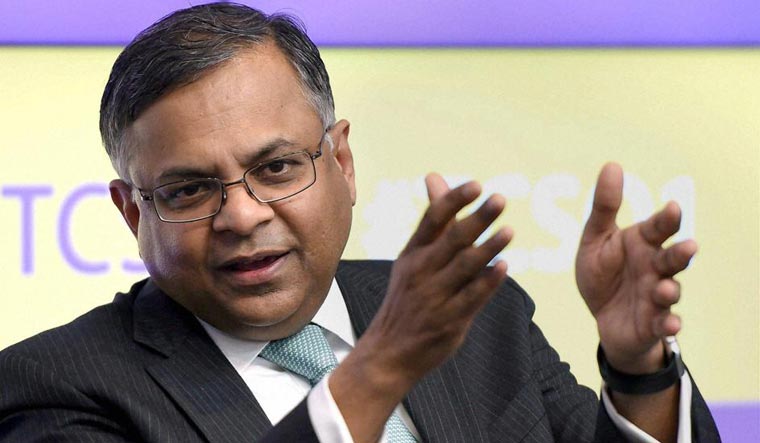The COVID-19 pandemic has hit world economies hard. In India, the GDP is expected to shrink sharply. Natarajan Chandrasekaran, the chairman of the salt to software conglomerate Tata Group, admits the challenge ahead is daunting, but also feels that the crisis could well become the catalyst towards a more resilient economy and a sustainable future.
“The challenges ahead are daunting, I do not doubt that. The worst crisis contains within it an opportunity for profound change,” Chandrasekaran said while delivering the Lalit Doshi Memorial lecture in Mumbai.
“COVID-19 could be a catalyst towards the adoption of digital technology, which will open health and education to millions. It could be a catalyst towards a more resilient economy and it could be a catalyst towards a more sustainable future. These are the three things we need to do to repair and fortify the fabric of the country and this is a springboard into new India.”
Chandrasekaran believes India can become the global leader in research and development, science and technology, artificial intelligence, advanced manufacturing and the next generation of products and services for mankind.
“We have to ensure our economy is resilient too. There are questions of infrastructure, there are big questions of regulation, there are big questions of investment, whether it is flowing into right sectors,” he said.
The COVID-19 crisis should “inspire” us to get “ahead of the curve” and invest in R&D in future growth sectors, and there are very few sectors as promising as renewable energy, he feels.
“Within two decades, nearly 20 new energy sources could be powering the global economy. Today, we have the chance to build companies that will lead the world in renewable energy, a sector that will be worth trillions worth 2030,” said Chandrasekaran.
He feels, COVID-19 could provide as much digital acceleration as many billions of dollars of venture capital invested over the decade and smart application of technology could create millions of new low-skilled jobs and scarce resources can be extended to bring in additional capacity.
“The only way we can solve our problems is by creating digital platforms with access to physical resources, because we don’t have time or the capital to keep creating more and more physical infrastructure,” said Chandrasekaran.
He also felt that if India wants to lead the world, sustainability would have to be at its core.
He is clear that “jugaad” or tweaks and tricks can take us only that far and one would have to work harder to meet India’s needs.
“The past months have been some of the most challenging the country has faced. But, history shows that with the right spirit, progress can follow a setback,” said Chandrasekaran.
He sees various trends emerging post the pandemic.
“Work from home will become common. We are not going to go back to the pre-pandemic period. Business travel will dramatically come down and more collaboration tools will play important role in functioning of companies and society,” he said.
With homes becoming the centre of consumers, how companies bring the experience of what they offer to the consumers at home will be important, he added.



